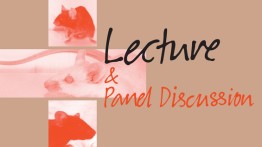Baneful Medicine: Lecture & Discussion
Tuesday, April 24, 2018, 6 - 8:30pm

A free, public lecture and discussion affiliated with the on-going group exhibition Baneful Medicine examines issues of the history and ethics around biomedical research and contemporary artists' response to them.
The bodies of people of color, the poor around the world, the incarcerated and military personnel have a history of being used as tissue for research. In 1946-47 Americans held Nazi doctors to account at the Nuremberg Doctors' Trial and initiated modern bioethics with the mandate of "informed consent" for human research subjects. Nevertheless, the U.S. government-funded Tuskegee syphilis study continued for decades after. Now that researchers pursue genomics toward an unknown future, does bioethics have what it takes to address still different challenges? How will biotechnological developments affect society's laws and norms? How much more conscientious are medical scientists today than they used to be?
Keynote
"Medicine After the Holocaust"
Sheldon Rubenfeld ChE'66, MD, FACP, FACE
Clinical Professor of Medicine, Baylor College of Medicine
Executive Director, Center for Medicine After the Holocaust
Panel Discussion
Moderated by Andrew Weinstein, curator of "Baneful Medicine" and adjunct associate professor, Faculty of Humanities and Social Sciences
Participating artists may include:
Todd Ayoung
Aziz + Cucher
Christine Borland
Heather Dewey-Hagborg, Aurelia Moser, Allison Burtch, Adam Harvey
Susan Erony
Arie A. Galles
Aharon Gluska
Eduardo Kac
Verena Kaminiarz
Vitaly Komar and Anna Halberstadt
Ruth Liberman
Larry Miller
The Baneful Medicine exhibition and catalog have been made possible with generous support from the Center for Medicine After the Holocaust and the Claims Conference.
Located in The Great Hall, in the Foundation Building, 7 East 7th Street, between Third and Fourth Avenues




